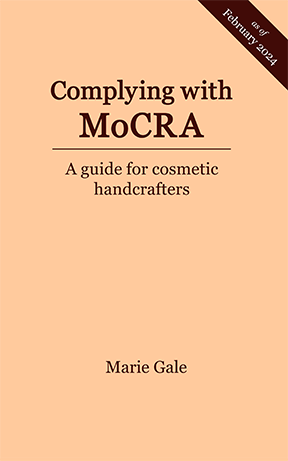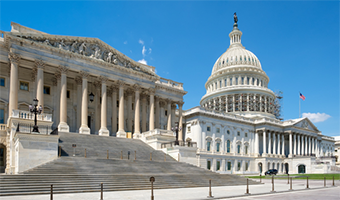On May 17, 2022, the Senate HELP (Health, Education, Labor, and Pensions) Committee introduced a draft bill which includes the Modernization of Cosmetic Regulation Act of 2022 (“MoCRA”). The draft bill mainly addresses FDA user fees which must be renewed this year. However, it also has additional FDA reforms for cosmetics, dietary supplements, in-vitro clinical tests, and some other areas of FDA responsibility.
[Update June 16, 2022] On May 26th Senate Bill 4348, the Food and Drug Administration Safety and Landmark Advancements Act of 2022 appeared. It looks to be nearly identical to the draft bill. It includes the Modernization of Cosmetic Regulation Act of 2022 AND the exemption provisions for small business noted below.
In the House, H.R. 7667, the “Food and Drug Amendments of 2022” was introduced in early May. It also addresses FDA user fees but does not contain any amendments to the current cosmetic laws.
[Update June 16, 2022] Meanwhile, on June 8th, H.R. 7667 passed the House and was received in the Senate the next day.
What Happens Next?
The FDA user fees must be renewed this year–by September, I believe. Since they are the source of funding for much of the FDA activities, one way or another, there will be legislation passed which covers that.
The Senate bill hasn’t yet been introduced; it is still in draft mode. Several groups have voiced opposition to some aspects of it (not cosmetics, as far as I have found). I expect there is plenty of discusssion going on to finalize the official bill and get it introduced.
Once both the House and Senate bills are passed (with any revisions), they are “reconciled” into a final bill that must be passed by the both the House and Senate. When that’s done, the bill goes to the President to be signed.
Changes to Cosmetic Laws & Regulations
As noted, some version of the bill will be passed because the FDA user fees must be passed. Whether the sections affecting cosmetics actually make it all the way through remains to be seen, but there’s a pretty good chance they will.
The good news is that small businesses making less than $1 million per year are exempt from the most difficult requirements.
The Senate HELP Committee draft proposes the following changes to cosmetic laws:
1. Adverse Event Reporting
The responsible person (that is, the person or business listed on the label) would be required (that’s new) to submit a report to the FDA for any serious adverse event concering a cosmetic product.
2. Good Manufacturing Practices
The FDA is directed to create Good Manufacturing Practices regulations (that’s new) for making cosmetics. They would have two years to get the regulations finalized. The bill specifically mandates making sure there are provisions for small manufacturers in the GMP regulations. Small businesses would be exempt.
3. Facility Registration
All cosmetic manufacturers would be required to register (that’s new) with the FDA. Small businesses would be exempt.
4. Product Registration
All cosmetic products would be required to be registered (that’s new) with the FDA. Where a line of products only differs because of fragrance, color, or quantity of ingredients it would only need to be registered once. Small businesses would be exempt.
5. Product/Ingredient Safety Substantiation
The safety of a cosmetic product would need adequate substantiation in the form of tests, studies, research, or other evidence. “Safe” is defined as meaning the cosmetic product, including the ingredients thereof, is not injurious to the user under customary and normal use. “Adequate substantiation” is not defined specifically, but it’s likely that documentation of ingredient safety would be sufficient.
6. Labeling
Labels would need a domestic address, phone number, or electronic contact information (that’s new) through which the responsible person could receive an adverse event report. It apparently means that if the street address is omitted, a phone number or email address would need to be included–but we’ll have to wait and see what the regulations say when they are issued (if this is included in the final bill).
7. Fragrance Allergens
Fragrance allergens would need to be identified on the label (probably in the ingredient declaration). The FDA would have one year to identify what fragrance allergens must be listed and issue proposed regulations. They are supposed to consider international, state, local, and European Union requirements for fragrance allergens when they make their proposed rule.
8. Records Inspections
The FDA would have the authority to access and copy certain records related to cosmetic products during an inspection or on request. Currently the FDA can ASK to see records, but can’t REQUIRE them to be made available.
9. Mandatory Recall
The FDA would have the authority to order (that’s new) a recall of cosmetic products if FDA determines there is a reasonable probability that the product could cause serious adverse health consequences. Currently the FDA can REQUEST that a company voluntarily recall a product, but they can’t REQUIRE a recall.
10. Preemption (Good News!)
The draft bill calls for preemption, which means that the final law would take precedence over any state laws. In fact, it says that no state may establish or continue in effect any law, regulation, or other requirement for cosmetics that is different from or in addition to, or otherwise not identical to these provisions. It looks like that would mean that states that require facility or product registration, or GMP, would have to change their laws. We’ll see if that makes its way forward–it would be great for people in states like Florida where there are existing state regulations in place!
Moving Forward
Over the next several weeks the Senate bill will likely be introduced. In the coming months, there will likely be revisions, updates, concessions, and modifications as the House and Senate bills come together. I expect that the Handcrafted Soap and Cosmetic Guild’s legislative team will be watching closely and working with their contacts on the Hill to make sure small business is protected.
I’ll keep you posted!

Shameless plug!
To find out how MoCRA applies to you, what you need to do, and when you need to do it by, get my book from Amazon and use it.
Up to date as of May 2024.



Leave a Reply